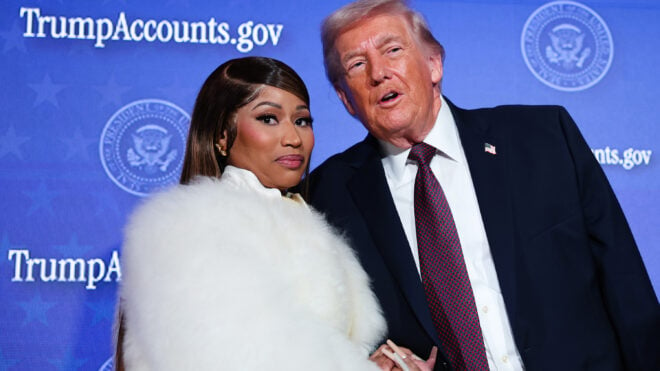
These days, people are realizing just how important it is to teach their kids financial literacy skills from a very young age.
Families are getting more involved in these lessons because they simply aren't being addressed in many schools. As of April 2022, only 21 states require a personal finance course for high school students. Meanwhile, about 53% of today's teens work and need to know money management skills. The National Financial Educators Council showed that teens scored an average of a D-minus on a financial literacy test.
Many members of Gen Z are paying attention to finances and investing and want to get involved. At their young ages, they already understand how important this will be to their futures.
LittleThings chatted with Ella Gupta, a Gen Z financial expert, about what teens should know. She's penned her own book, Gen Z Money $ense: A Personal Finance and Investing Guide, and serves as an ambassador for Greenlight, the banking and investment app for teens.
Ella says her interest in personal finance started at a young age.

Ella explains that her family has always been open about finances and even involved her in the decision-making process at times.
"I've been exposed to money from a young age. My parents have always made a point of including me in financial decisions, whether big or small, such as deciding whether to take an Uber or walk," she shared.
"My first experience handling money came when I began my first business selling Rainbow Loom bracelets in elementary school. I donated half of my profits to a pet charity and invested the other half in the stock market."
Ella kept that enthusiasm going into her teen years.

Ella got involved in investing when she was just 14 years old.
"When I was 14, I began my first job cleaning dental instruments and subsequently opened a Roth IRA," she said.
At 17, Ella has developed quite a platform to share her personal finance tips.
Ella's book, Gen Z Money $ense: A Personal Finance and Investing Guide, is an award-winning personal finance book that features pragmatic instruction and insights about the world of money in an unintimidating fashion. Ella also teaches financial literacy workshops in her community, focusing on girls in an effort to narrow the financial gender gap as the founder of the Initiative for Financial Literacy Exploration (iFLEX). As part of Gen Z herself, Ella recognizes the challenges Gen Z has in learning about financial management.
"I think teens feel that personal finance is daunting and complicated and don't really know where to start. This was my motivation for writing my book, Gen Z Money $ense," Ella explained.
"I wanted to create an engaging, digestible resource to which members of Gen Z, or Zoomers, could relate. I also think teens face many mental roadblocks, such as not believing that they have enough money to begin investing or that they have plenty of time to begin."
Ella acknowledges that a lot of her peers feel like they have plenty of time to figure out their finances.

Still, she urges that acting sooner rather than later can make a major difference.
"Even a year or two can make a significant impact on your future nest egg. Time is your best financial friend when it comes to building wealth!" she noted.
"You do not need to wait to get your first full-time job before you begin investing. When you invest, you put your money to work for you. Personal finance does not need to be complicated. You can set up automatic contributions to invest into an index fund and build wealth passively."
Gen Z is already fortunate because there are so many financial tools at their disposal.
There are more products than ever that are available to teens and families who are interested in educating all their members about finance. Ella mentions the two that have piqued her interest most.
"One of my favorite tools right now for learning about finances and managing them is Greenlight, which offers financial products for families. Greenlight gives teens the ability to invest with as little as $1 and to translate knowledge into action," she shares.
"Zogo Finance is another app that offers gamified financial education modules and is a fun way to get your feet wet in the world of personal finance."
Ella is particularly passionate about getting girls into investing.
A new study by Greenlight found that the gender gap as it relates to finances starts to emerge around 13. Girls are more likely to learn about donating and giving (42% to 29%), while boys are more likely to learn about investing in stocks (41% to 30%), for example.
"According to a Girl Scouts study, only 12% of girls feel very confident making financial decisions," Ella shared.
"Additionally, females often experience financial injustice starting at an early age; girls receive less pocket money than boys on average for the same work. We need to work to both dismantle gender stereotypes and foster a sense of confidence in young girls, targeting them with financial education programs."
"Money management skills are a source of empowerment and confidence; in fact, 93% of teens believe financial knowledge is needed to achieve life goals, so refuting the perception that men are the primary breadwinners is a crucial step in fostering gender equality in a financial context," she asserted.
Ella also believes we need to get over the concept of talking finances being taboo.

Sometimes teens might not agree with how their family handles finances, or they might be part of a family that doesn't feel comfortable sharing those things with them. Ella assures other avenues of learning can be beneficial, even if you're not seeing it up close at home.
"Money has traditionally been a taboo topic not discussed in polite company, but having financial conversations are crucial. You can learn so much from talking to others around you," Ella said.
"It's top of mind now for families — according to a Greenlight survey, 67% of parents and teens report that money is one of their most talked about topics in the past six months. Teens can also chat with their friends about companies they've been researching or about how they're managing the money they earn from their part-time jobs. Additionally, there are a wealth of resources available to learn about money."
Many teens are worried that experimenting in investing can go way wrong.

Ella says that there are a number of risk-free ways teens can get acquainted with investing.
"Teens can get their feet wet in the world of investing with fractional shares. With Greenlight, you can invest in stocks and ETFs with as little as $1," she noted.
"Ten years ago, most brokerage accounts had high account minimums or required a commission fee for purchasing or selling stocks. Many of the barriers that previously impeded investing no longer exist, giving teens a significant advantage over previous generations."
Ella has one piece of financial wisdom she hopes every teen in the country will take to heart.

"As soon as you begin to generate income and are eligible, open an IRA!" Ella suggested.
"These tax-advantaged accounts are an excellent way to grow wealth for the long-term."
Ella hopes that teens will not stand in their own way when it comes to building wealth.

"Mindset is one of the most critical components to financial success. Take a few minutes to sit down and think about your mental obstacles and limiting beliefs related to money," Ella advised.
"Some common ones are 'I'm not good at math' and 'I don't have enough money.' Realize that you have the power to conquer these psychological hurdles and that they are merely myths. Anyone can be a good investor. You don't need to be a math whiz or work on Wall Street to do well.
"Anyone can be a good investor with the right degree of patience and discipline. In fact, women are considered better investors than men because they tend to be more patient, logical, and emotionally intelligent."







